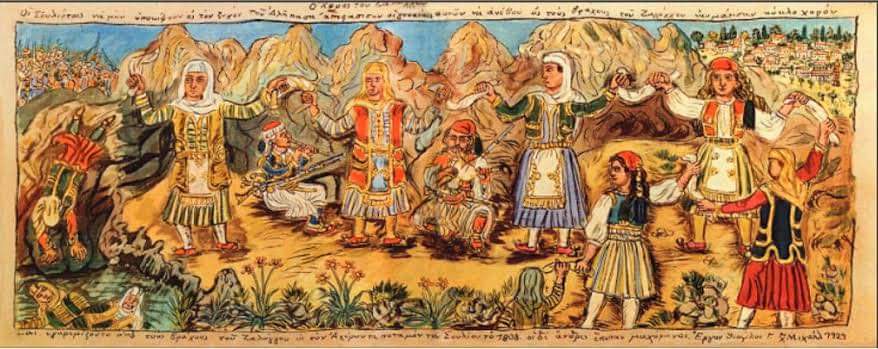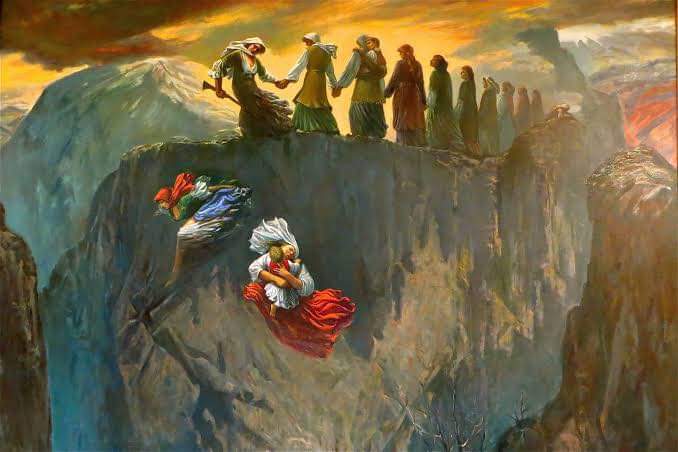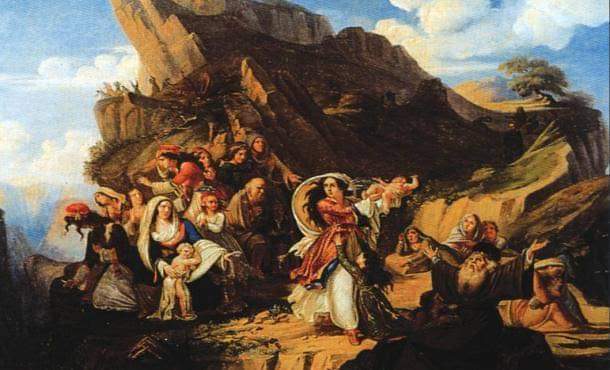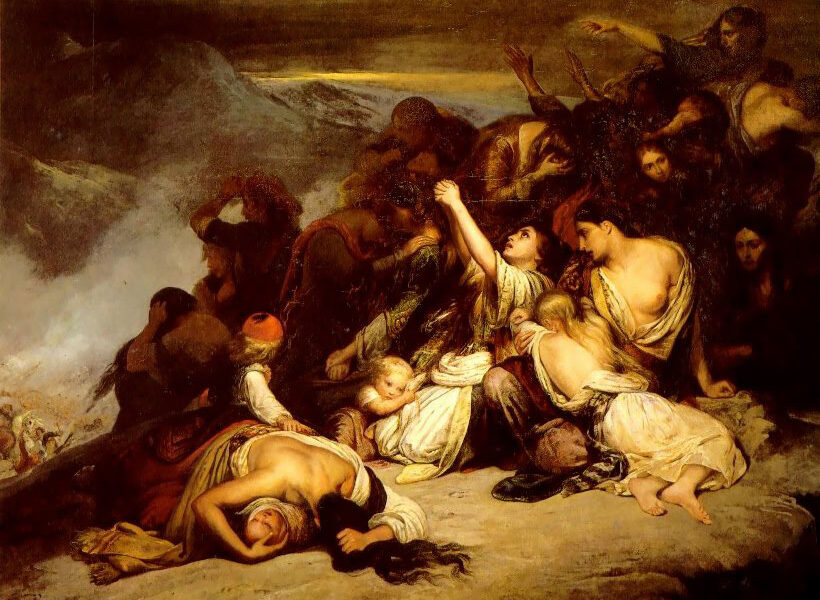The Dance of Zalongo, the mass suicide of Souliote women and children, is one of the most infamous events in modern Greek history.
The Souliotes were an Eastern Orthodox community of the area of Souli, in Epirus, known for their military prowess, their resistance to the local Ottoman Albanian ruler Ali Pasha, and their contribution to the Greek cause in the Greek War of Independence.

During the Souliote War in December 1803, the Souliotes began evacuating Souli after their defeat by the forces of the local Ottoman-Albanian ruler, Ali Pasha.
During the evacuation, a group of Souliot women and their children were trapped by Ali's troops in the mountains of Zalongo in Epirus.= In order to avoid capture and enslavement, the women threw their children first and then themselves off a steep cliff, committing suicide.
According to the legend, they jumped down the precipice one after the other while singing and dancing.
The incident soon became known across Europe. At the Paris Salon of 1827, the French artist Ary Scheffer exhibited two Romantic paintings, one of which was entitled Les Femmes souliotes ("The Souliot Women").
Today, the Zalongo Monument on Mount Zalongo in Kassope commemorates their sacrifice.

The Dance of Zalongo refers to the mass suicide of women from Souli and their children during the Souliote War at December 16, 1803.
After being trapped by Ottoman Albanian troops, near the village of Zalongo in Epirus, modern Greece, then Ottoman Empire, about 60 women decided to turn towards the cliff's edge together with their infants and children rather than surrender.

According to tradition, they did this one after the other while dancing and singing.
The name also refers to several Greek theatrical dramas and a song in folk style, commemorating the event, named "Dance of Zalongo" Χορός του Ζαλόγγου, Horos tou Zalongou).
READ MORE: Monument of Zalongo finally listed as cultural heritage site.


